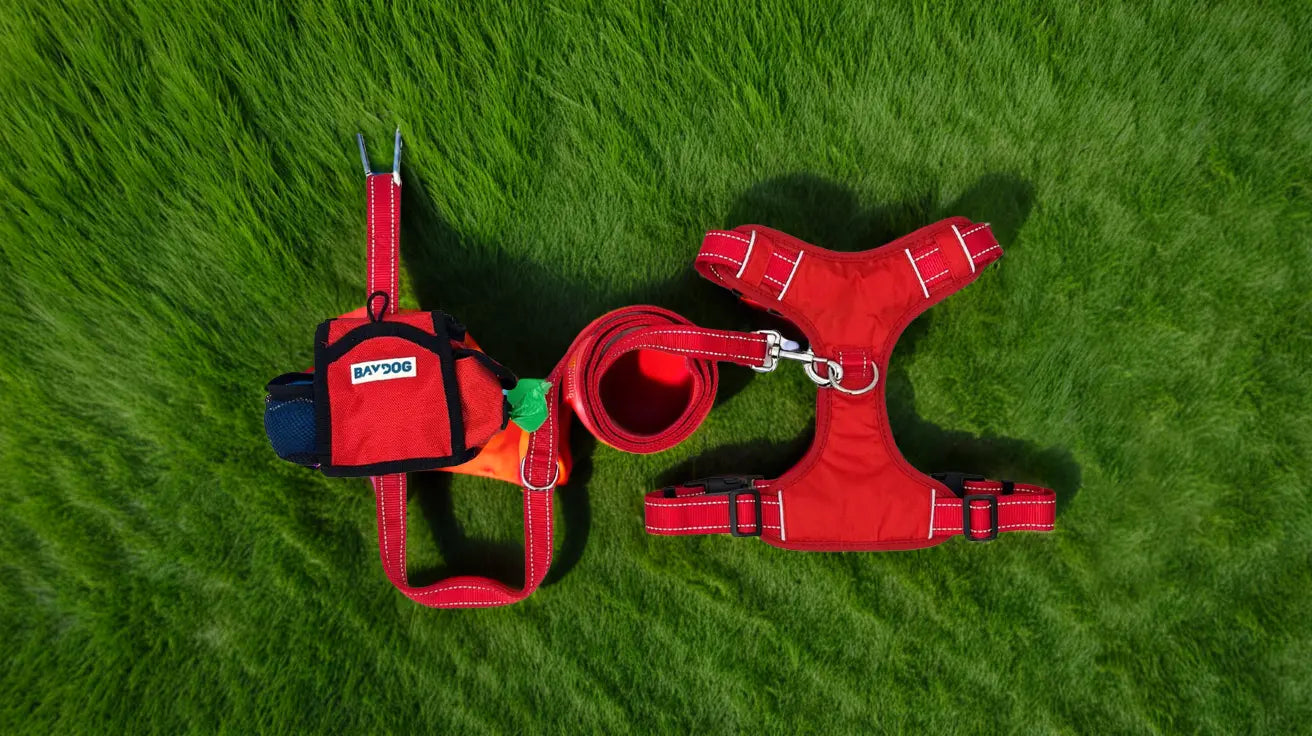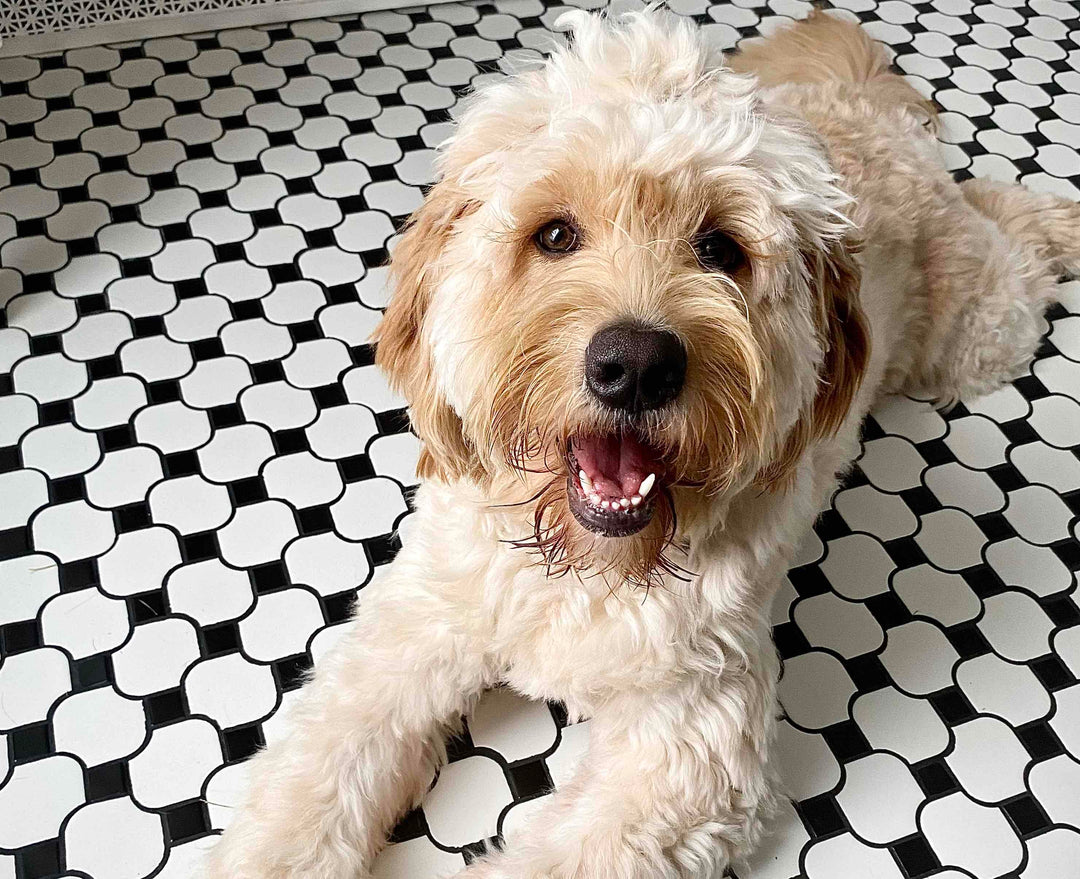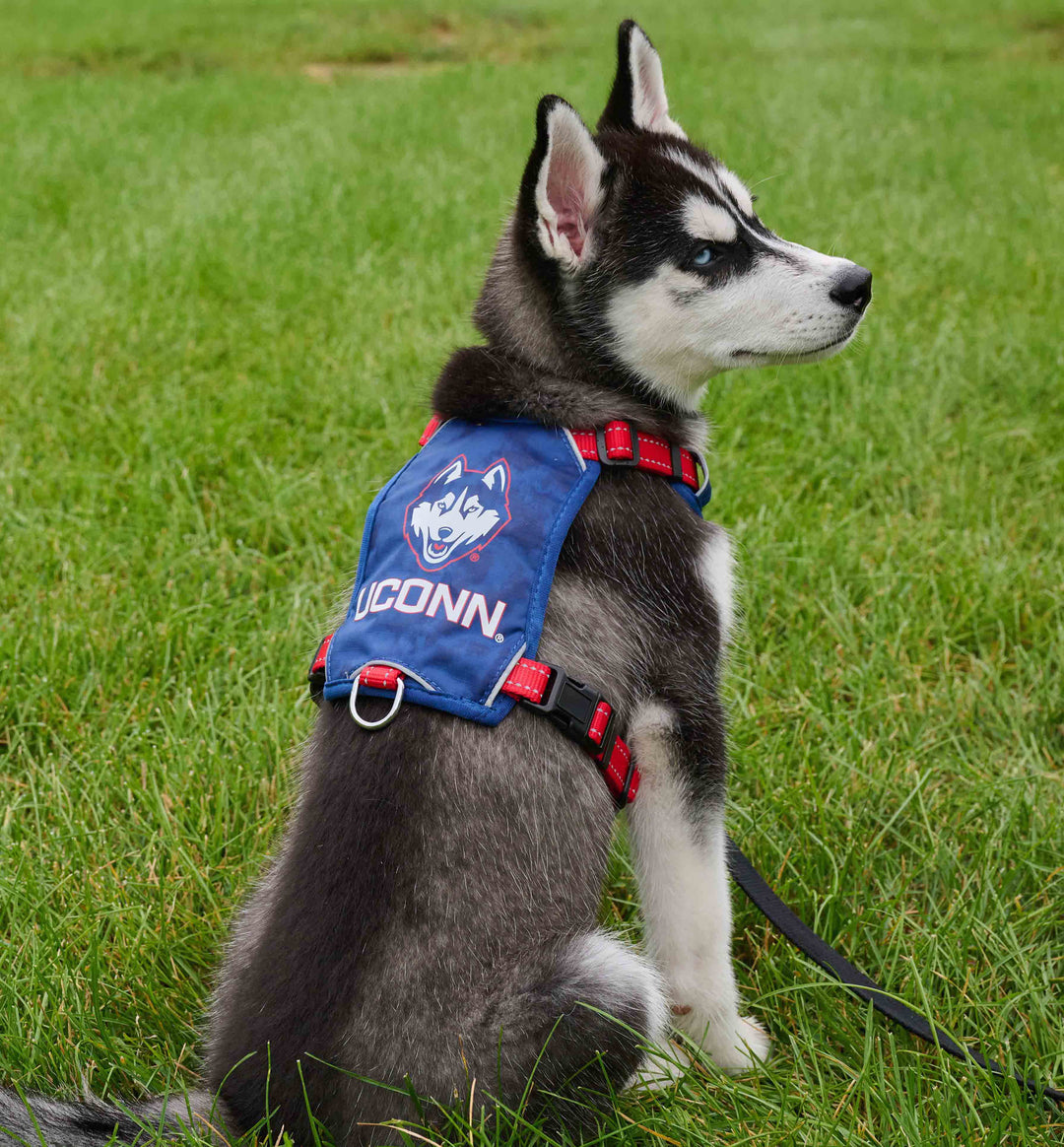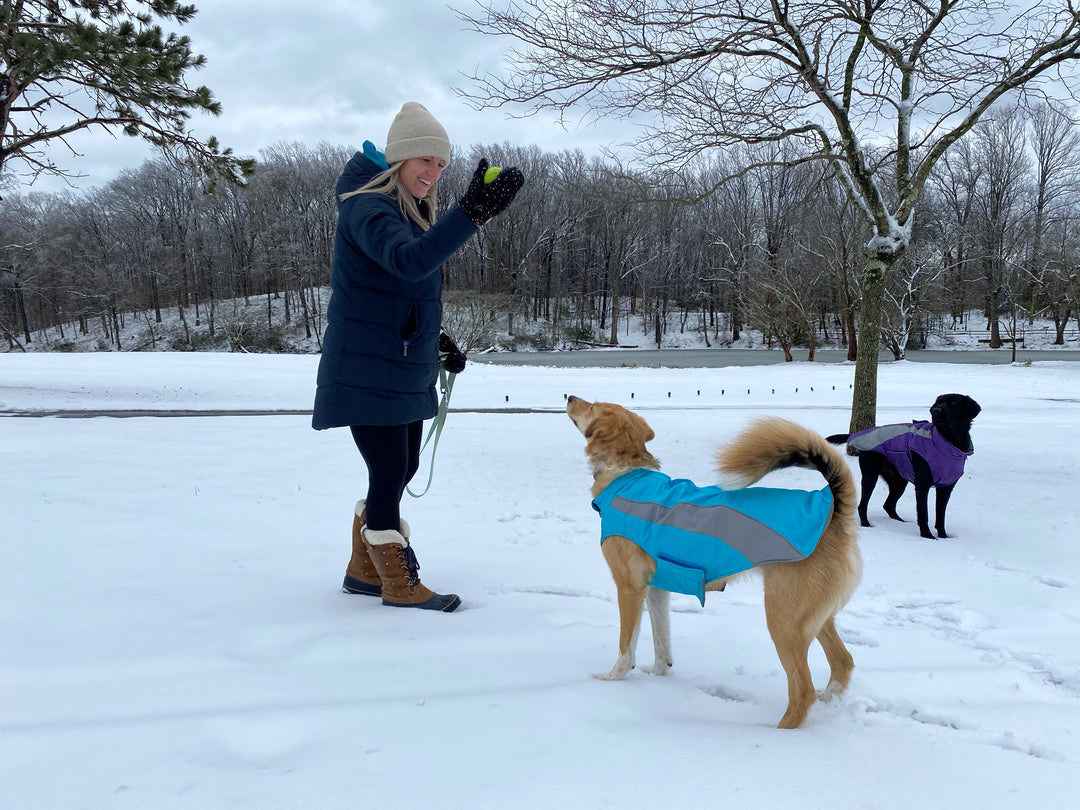Do you own a baby version of what is known to the rest of the world as ‘a large breed dog’? It may be a small adorable puppy now, but in no time at all, it will grow into a giant fur ball that’s too heavy to carry. Don’t worry though, it will still be just as cute and loving. You just need to learn the ins and outs of taking care of a large breed puppy.
Large breed puppies need different care than other breeds. They grow super-fast and when they’re finally adults, they can weigh over 60 pounds! Crazy, right?
Dogs of this breed are some of the most playful and energetic ones you’ll find. However, they need to be trained and taken care of in a very special way in order to grow up to be healthy and well behaved.
If you’re one of those blessed people who own a large breed puppy, keep on reading. Here you’ll find a basic guide and some important tips for taking care of a large breed puppy. We'll help you understand what you're in for when caring for your giant ball of sunshine.

 The question of enough exercise doesn’t arise for a large breed puppy, because they absolutely love being active. However, you need to make sure your puppy isn’t going overboard and doing high impact activities.
Exercise is ideal when it is done consistently. Being indoors all week and doing nothing, but doing a highly challenging hike on the weekend is not going to do your puppy any good. Also, don’t let your puppy jump around too much from high places. Remember, they may seem big, but their joints are still very fragile!
Large puppies are bursting with energy all the time. This might get a little hectic, so it’s a good idea to do fun low impact exercises like finding treats, clicker training and nose work. This will control their energy and help them to learn to focus. But remember, your puppy is still young and doesn’t have proper control of his actions. It's best to keep these exercises short.
The question of enough exercise doesn’t arise for a large breed puppy, because they absolutely love being active. However, you need to make sure your puppy isn’t going overboard and doing high impact activities.
Exercise is ideal when it is done consistently. Being indoors all week and doing nothing, but doing a highly challenging hike on the weekend is not going to do your puppy any good. Also, don’t let your puppy jump around too much from high places. Remember, they may seem big, but their joints are still very fragile!
Large puppies are bursting with energy all the time. This might get a little hectic, so it’s a good idea to do fun low impact exercises like finding treats, clicker training and nose work. This will control their energy and help them to learn to focus. But remember, your puppy is still young and doesn’t have proper control of his actions. It's best to keep these exercises short.
 It's not secret that your large breed puppy is going to grow up to be a large dog. You need to be able to control his behavior and teach him to respect you from an early age. Of course, just like any other pup, you’ve got to start off with the basics of ‘sit’, ‘stay’, ‘come’ and ‘heel’.
You also need to nip unacceptable behaviors in the bud. For example, you can’t let your large breed puppy get used to jumping on you. While some of these behaviors may be adorable when your puppy is little, you’ll regret it when he gets bigger.
Unlike smaller dogs, even basic things like walking, brushing or even giving your pup a bath will be highly difficult if the large puppy doesn’t cooperate. This is why proper training is so important. Remember, if you don’t put in the effort now, you’ll only be making things difficult for the future.
You have a lot of research to do before adopting your new pet, and learning how to train a large breed should be part of that research. It's time consuming and a bit frustrating. But, if you're properly prepared, training will be a very rewarding experience for both you and your dog.
If you don't feel comfortable training your dog or you don't believe that you have the time, seek the help of a professional dog trainer. A professional trainer will work with you on obedience training and handling your dog. They can also help with any behavior issues that your pup is demonstrating.
It's not secret that your large breed puppy is going to grow up to be a large dog. You need to be able to control his behavior and teach him to respect you from an early age. Of course, just like any other pup, you’ve got to start off with the basics of ‘sit’, ‘stay’, ‘come’ and ‘heel’.
You also need to nip unacceptable behaviors in the bud. For example, you can’t let your large breed puppy get used to jumping on you. While some of these behaviors may be adorable when your puppy is little, you’ll regret it when he gets bigger.
Unlike smaller dogs, even basic things like walking, brushing or even giving your pup a bath will be highly difficult if the large puppy doesn’t cooperate. This is why proper training is so important. Remember, if you don’t put in the effort now, you’ll only be making things difficult for the future.
You have a lot of research to do before adopting your new pet, and learning how to train a large breed should be part of that research. It's time consuming and a bit frustrating. But, if you're properly prepared, training will be a very rewarding experience for both you and your dog.
If you don't feel comfortable training your dog or you don't believe that you have the time, seek the help of a professional dog trainer. A professional trainer will work with you on obedience training and handling your dog. They can also help with any behavior issues that your pup is demonstrating.
5.
A big part of taking care of a large breed puppy is having the right gear. You'll need a harness, leash and dog toys. Our Chesapeake Harness is designed with large breeds in mind. This harness features easy 4-way adjustment that allows it to grow with your pet. There are also 3 attachment points, including one on the chest that is ideal for leash training your pup.
The Chesapeake Harness pairs perfectly with our Hudson Bay Leash. This leash is made for large breeds and their owners. The 2-layer construction makes it extremely durable, and it's 1-inch width and reinforced stitching allow it to withstand the force of even the largest dogs. Don't forget the padded handle that will keep you comfortable when you're taking long walks to burn all of that puppy energy.
And, did I mention toys? Both our Fetch Ring and Classic Bumper toys are made with the strong jaws of a dog in mind. They are made of durable ballistic nylon. These toys are also waterproof and bouyant for fun in the water.
Taking Care of A Large Breed Puppy: A Basic Guide

1. Control your puppies food
I really don’t think I need to remind you about how fast large breed puppies grow. Needless to say, if you feed them too much, they’ll grow wider as they are growing taller. Not only will this be inconvenient for you, it will also be bad for your puppy’s health because there will be an additional pressure on his muscles and joints. Until large breed puppies are 6 months old, they should be fed three times a day. Make sure you follow your vet’s instructions specifically and measure out the servings. Don’t leave food in Fido's bowl all day, because this is a sure way for your puppy to over-eat. There are a lot of different types of large breed puppy foods to choose from, and you should definitely stick to the types of food that are specifically catered to them. Normal puppy food is high in minerals, protein and calories, which may cause your large breed puppy to grow unnaturally fast. When taking care of a large breed puppy, it's important to have a conversation with your veterinarian about the right diet to feed. They can guide you in choosing a food that will meet all of your pup's nutritional needs. The general rule is that if you can’t feel your pup’s ribs through his skin and fat, he’s most likely overweight. Make sure you’re not overfeeding your pup, and steer clear of feeding him human snacks and table scraps. You’ll definitely be doing him more harm than good! One of the most important aspects of taking care of a large breed puppy is ensuring that they stay at a healthy weight.2. Careful with the exercise
 The question of enough exercise doesn’t arise for a large breed puppy, because they absolutely love being active. However, you need to make sure your puppy isn’t going overboard and doing high impact activities.
Exercise is ideal when it is done consistently. Being indoors all week and doing nothing, but doing a highly challenging hike on the weekend is not going to do your puppy any good. Also, don’t let your puppy jump around too much from high places. Remember, they may seem big, but their joints are still very fragile!
Large puppies are bursting with energy all the time. This might get a little hectic, so it’s a good idea to do fun low impact exercises like finding treats, clicker training and nose work. This will control their energy and help them to learn to focus. But remember, your puppy is still young and doesn’t have proper control of his actions. It's best to keep these exercises short.
The question of enough exercise doesn’t arise for a large breed puppy, because they absolutely love being active. However, you need to make sure your puppy isn’t going overboard and doing high impact activities.
Exercise is ideal when it is done consistently. Being indoors all week and doing nothing, but doing a highly challenging hike on the weekend is not going to do your puppy any good. Also, don’t let your puppy jump around too much from high places. Remember, they may seem big, but their joints are still very fragile!
Large puppies are bursting with energy all the time. This might get a little hectic, so it’s a good idea to do fun low impact exercises like finding treats, clicker training and nose work. This will control their energy and help them to learn to focus. But remember, your puppy is still young and doesn’t have proper control of his actions. It's best to keep these exercises short.
3. Familiarizing and socializing will make life easier
Socializing is necessary for all puppies, because they need to learn how to behave around people they don’t know. However, in the case of larger breeds, they can actually cause a lot of injuries if they react badly to someone. This is why it is extremely important that you allow your puppy plenty of opportunities to get used to people. Don’t worry though, this isn’t a very difficult task. Make sure you start off by introducing your pup to gentle puppies and people, preferably of all ages. Remember to only let your dog interact with other people and dogs after vaccination. After a few weeks, take your pup out for walks so he can see all sorts of people, vehicles, environments and other things that will stimulate and excite him. Taking him out for car rides or rides on public transportation will also help to familiarize him. You want your puppy to be familiar with as much as possible and all sorts of noises. Remember, even something as normal as a bicycle or a hat can be unfamiliar for your puppy. When taking care of a large breed puppy, you must make sure that he is properly socialized with as much as possible. Keep in mind that you shouldn’t force socialization. In fact, make sure you only expose your puppy to situations you know will be positive. If a situation has the potential to be dangerous, don't do it! It’s better for your puppy to have a few good experiences with socialization than a lot of bad ones. This is because dogs tend to develop anxiety and aggressiveness towards things that they don’t like. For example, if a child picks up a large puppy and the puppy gets scared, he may have negative feelings towards children and act out poorly in the future. For this reason, you must always be there when any sort of socialization is happening and make sure your pup doesn’t go haywire.4. Start Training your Large Puppy Early On
 It's not secret that your large breed puppy is going to grow up to be a large dog. You need to be able to control his behavior and teach him to respect you from an early age. Of course, just like any other pup, you’ve got to start off with the basics of ‘sit’, ‘stay’, ‘come’ and ‘heel’.
You also need to nip unacceptable behaviors in the bud. For example, you can’t let your large breed puppy get used to jumping on you. While some of these behaviors may be adorable when your puppy is little, you’ll regret it when he gets bigger.
Unlike smaller dogs, even basic things like walking, brushing or even giving your pup a bath will be highly difficult if the large puppy doesn’t cooperate. This is why proper training is so important. Remember, if you don’t put in the effort now, you’ll only be making things difficult for the future.
You have a lot of research to do before adopting your new pet, and learning how to train a large breed should be part of that research. It's time consuming and a bit frustrating. But, if you're properly prepared, training will be a very rewarding experience for both you and your dog.
If you don't feel comfortable training your dog or you don't believe that you have the time, seek the help of a professional dog trainer. A professional trainer will work with you on obedience training and handling your dog. They can also help with any behavior issues that your pup is demonstrating.
It's not secret that your large breed puppy is going to grow up to be a large dog. You need to be able to control his behavior and teach him to respect you from an early age. Of course, just like any other pup, you’ve got to start off with the basics of ‘sit’, ‘stay’, ‘come’ and ‘heel’.
You also need to nip unacceptable behaviors in the bud. For example, you can’t let your large breed puppy get used to jumping on you. While some of these behaviors may be adorable when your puppy is little, you’ll regret it when he gets bigger.
Unlike smaller dogs, even basic things like walking, brushing or even giving your pup a bath will be highly difficult if the large puppy doesn’t cooperate. This is why proper training is so important. Remember, if you don’t put in the effort now, you’ll only be making things difficult for the future.
You have a lot of research to do before adopting your new pet, and learning how to train a large breed should be part of that research. It's time consuming and a bit frustrating. But, if you're properly prepared, training will be a very rewarding experience for both you and your dog.
If you don't feel comfortable training your dog or you don't believe that you have the time, seek the help of a professional dog trainer. A professional trainer will work with you on obedience training and handling your dog. They can also help with any behavior issues that your pup is demonstrating.


























